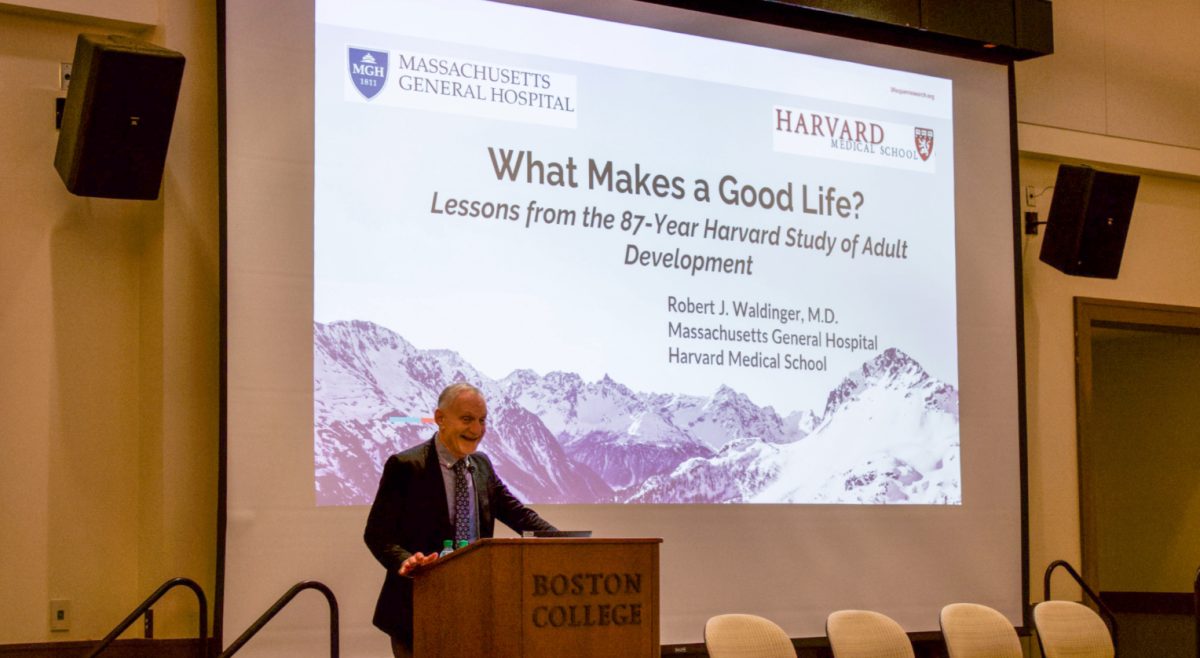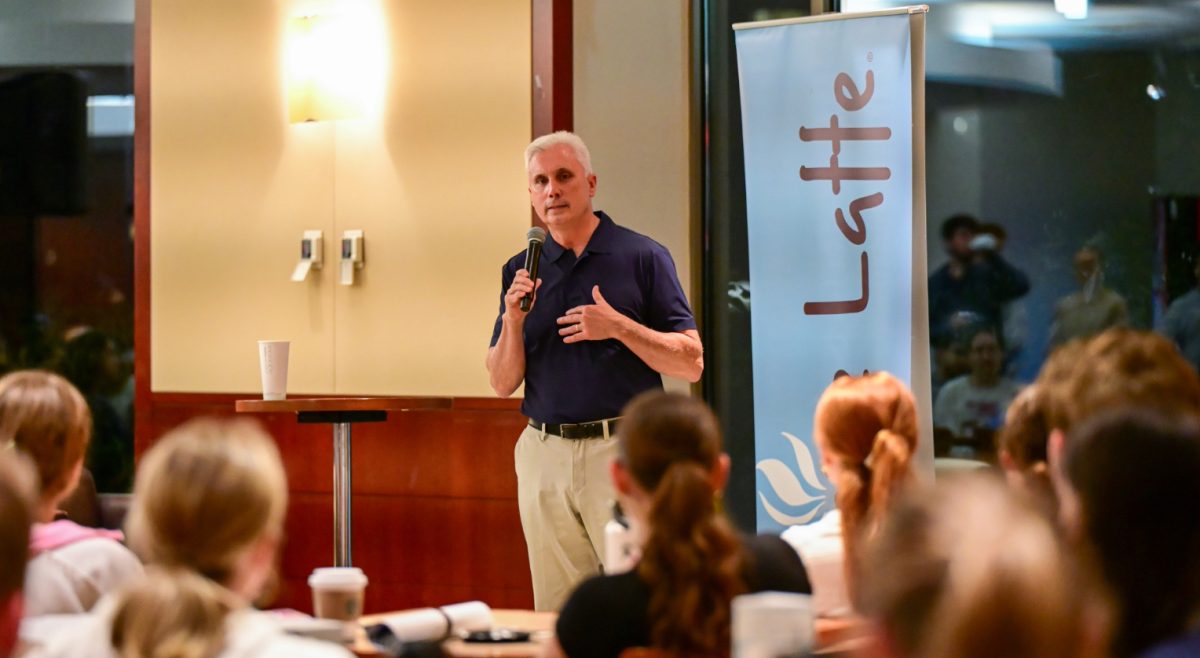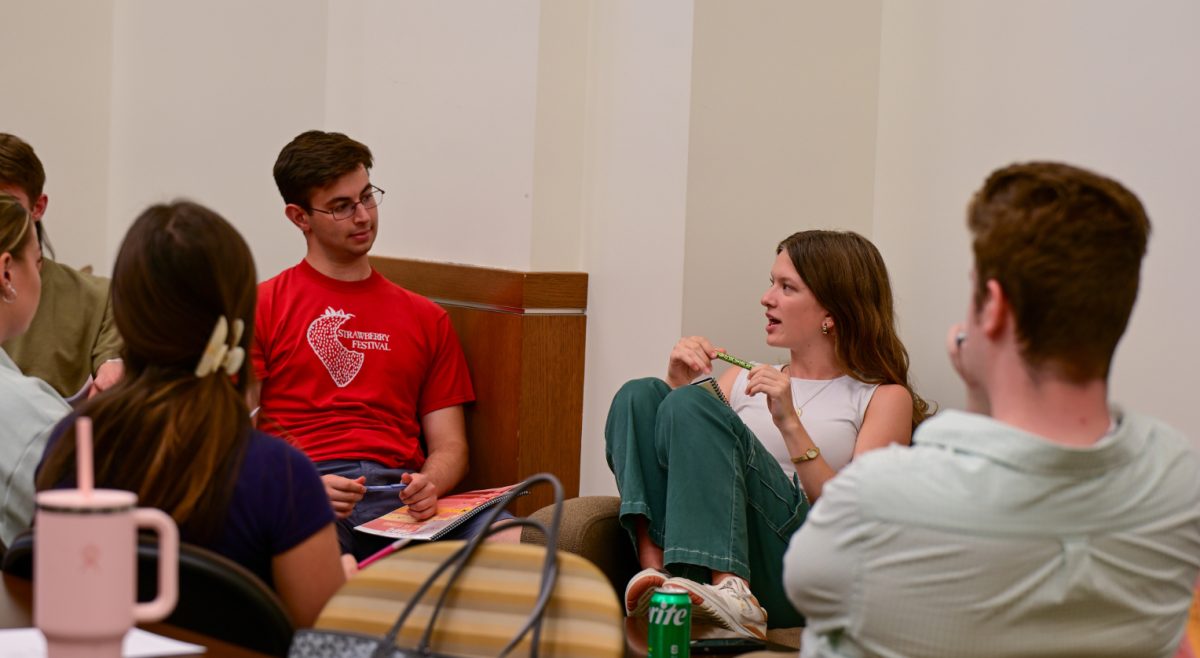University Counseling Services (UCS) introduced a new self-help program for students called WellTrack on Monday. With an access code, “BCWelltrack,” students can sign up, create a WellTrack account, and begin a personalized course to improve their moods through working on skills and exercises designed to address anxiety and depression.
Developed by Darren Piercy, a psychology professor at the University of New Brunswick, WellTrack is designed to be a platform that helps teach and practice skills that address anxiety, depression, and stress. Along with Boston College, Georgia State University, Memorial University, and the University of California, Santa Cruz, also use WellTrack. The Canada-based startup works to address the mental health challenges that one-in-five North Americans face.
Director of UCS Craig Burns said that anxiety and depression are the two primary concerns that students have regarding their mental health, and this self-help platform works to build healthy skills and habits surrounding both challenges.
“Not everyone needs one-on-one therapy,” Burns said. “I think one-on-one therapy is a great asset, but sometimes something that can be accessed on your own schedule, at your own pace, is what is needed. It’s useful for students to have a wider range of choices about how they want to address their mental health concerns.”
Upon registration with the program, students are met with a 21-question initial survey that takes about a minute to complete. Within the app, students are asked to select emoji-style icons and fill in recent information regarding their mood, length of time between different moods, and activities that result in various moods. After completion, the results detail various levels of depression, anxiety, and stress that students “have.”
Depression and anxiety are both symptoms of many psychological disorders. Depression itself is a mood disorder, and there are many different anxiety disorders. While the survey results state that students “have” various levels of anxiety, depression, and stress, Burns does not regard these statements as diagnoses, but rather said the results serve as a description of symptoms pointing in a direction that students should focus on within the app.
“Any diagnosis would need to be made through far more than just internet-based survey questions,” Burns said. “An actual diagnosis should require a more detailed in-person interview.”
Based on the survey results, the program will recommend a certain area that the student should begin working on. The platform features three “courses” focusing on anxiety and stress, depression, and phobia.
The anxiety and stress course is a five-week program aimed at improving students’ thoughts, behaviors, and moods. The depression course is a six-week program. The phobia course teaches students about anxiety and provides practice for relaxation while viewing 3D simulations of the students’ phobias.
UCS partnered with the Office of Health Promotion to release WellTrack to students. WellTrack was the app of choice because of its option to involve clinicians as well as be used independently, Burns said. Students can use this as a part of their therapy and use the app as a mood tracker or progress indicator that therapists and students can work on together.
Burns said that the launch of this self-help program may slow the increase in demand for individual and in-person services, and clarified that this is not a goal, but rather a possible side-effect.
“We are and want to continue to be available to every BC student in a range of ways, and we recognize that not every problem necessarily needs ongoing therapy,” Burns said. “We don’t want to provide a single solution to a range of problems.”
According to Andrew Ferrante, a licensed mental health counselor, psychotherapist, and behavioral analyst who specializes in anxiety and depression, self-reporting through platforms like self-help apps can be an effective way to address depression and anxiety for more subtle issues. For functional issues, however, it can be less helpful. Functional issues include an inability to get out of bed in the morning, skipping class due to social anxiety, or not wanting to leave the dorm due to anxiety or depression.
“Nothing is a substitute for talk therapy,” he said.
A growing number of students have expressed a need for UCS resources, and student visits have increased this year. Two years ago, a report within UCS indicated a 25 percent increase in student demand for UCS programs. Just this year, there was an 8 to 11 percent increase in student visits to UCS when compared to previous years.
This year, two new staff members started work at UCS: a full-time staff psychologist and a full-time clinical postdoctoral fellow. Burns said that UCS is very thankful to have increased its staff size, and has been able to offer a range of new services as a result.
“[The two hires is] nice, but it’s still not enough,” Thomas McGuiness, a former director of UCS, said last March. “You could double the staff and they’d still be busy.”
Burns said that there are no current plans for increasing staff at UCS in light of the recent hires. Currently, UCS has a staff composed of 12 full-time psychologists, four full-time postdoctoral fellows, three part-time psychiatrists, and two weekend emergency-response clinicians.
“Last year we saw 1,794 students at UCS, a number which we expect to be slightly higher this year, given our increased staff,” Burns said in an email.
With a total of 21 staff, two more than last year, handling 1,794 students would result in an 85:1 staff-to-student ratio.
“If we had more staff, I’m sure we would continue to be fully utilized,” Burns said. “But, it is of course an additional cost, and I think the University has to be wise about how they allocate resources.”
Featured Image Courtesy of WellTrackApp.com












